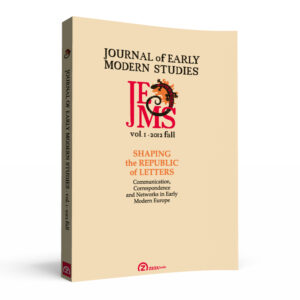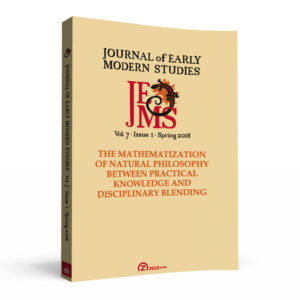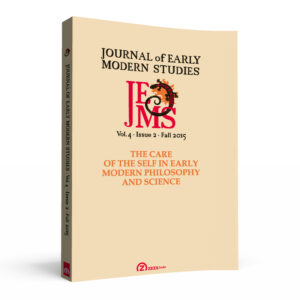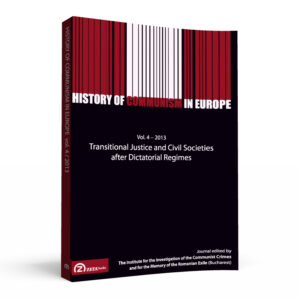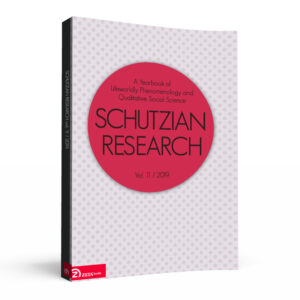Daniel Andersson, On Borrowed Time: Internationalism and its Discontents in a Late Sixteenth-Century University Library
- Abstract: An analysis of the accession history, together with a few refinements thereto, of the Báthory Jesuit College in Transylvania tells us much about the international and local buying practices of a humanistic reading community in a period of confessional strife. This short article makes a few corrections to our current knowledge of this library, together with a few obiter comments on Transylvanian book pricing and on the second-hand usage of student works. The Republic of Letters depended, naturally enough, on the inculcation of a worldview that was not wholly parochial. Accordingly, the article also considers the nature of the intellectual culture that the partial reconstruction suggests and, finally, the division of labour between international and local markets for the sourcing of books.
Noel Golvers, “Savant” Correspondence from China with Europe in the 17th-18th Centuries
- Abstract: In this survey I describe the practice of letter wriring in the Jesuit society in the Early Modern times, especially focusing on its role in the diffusion of scholarly information on China and its role in the construction of knowledge on China in Europe. After a description of the general background, I analyse consecutively: (1) some distinctive characteristics of the correspondence from China compared to the common Jesuit practices; (2) the historical communication and transfer routes between China and Europe; (3) the identity of a series of correspondents; (4) the scholarly topics discussed in these letters; (5) the present location of the main collections. I will finish (6) with a presentation of some major individual collections and (7) the impact of this correspondence on the contemporary European reading public, with an overall assessment of these letters as a source for 17th–18th–century European and world history.
Roger Ariew, Descartes’ Correspondence before Clerselier: Du Roure’s La Philosophie
- Episodes of the wide diffusion of Galileo’s letters prompts me to consider whether the same thing could be demonstrated for Descartes. The question that interests me most is the circulation of Descartes’ correspondence before the publication of Clerselier’s edition of it, in three volumes, 1657–1667. Thus I examine the influence of Descartes’ unpublished correspondence in Jacques Du Roure’s La Philosophie divisée en toutes ses parties (Paris, 1654). It contains paraphrases of some letters by Descartes and a number of Descartes’ views whose contents were not available in the published corpus. I discuss in particular: 1. To Clerselier, June or July 1646 (about first principles); 2. To Elisabeth, August 4, 1645 (about happiness); 3. To Mersenne?, May 27, 1641?, or To Mesland?, February 9, 1645? (about freedom of indifference). I also examine the evidence of a missing letter: To Mesland, February 9, 1645 (about transubstantiation and individuation). As with the case of the wide diffusion of Galileo’s unpublished letters, we can see a rather quick dissemination of Descartes’ correspondence. Three of four letters were circulated, if not by Descartes’ correspondents, at least by Clerselier just after Descartes’ death, even before the publication of his Lettres de Mr. Descartes.
Anne Davenport, English Recusant Networks and the Early Defense of Cartesian Philosophy
- Abstract: Following the publication of Descartes’s mechanistic explanation of transubstantiation in 1641, proponents of Galileo’s cosmology and of mechanistic principles of philosophy found themselves vulnerable to a concerted attack by theological authorities. This article calls attention to an early written defense of Cartesian transubstantiation and argues that the “weak” ties of English Catholic networks played a key role in mounting a targeted defense, beyond Mersenne’s immediate circle, of the autonomy of natural philosophy.
Michael Deckard, Acts of admiration: Wondrous Women in Early Modern Philosophy
- Abstract: This paper examines three sets of correspondence in the early modern tradition in order to bridge natural philosophy and practical philosophy by means of the notion of admiration, which Descartes mentions in article 53 of Traité des Passions de l’âme as “the first of all the passions”. I will thus first look at the correspondence of Princess Elisabeth of Bohemia (1618-1680) and René Descartes (1596–1650) in which Elisabeth is a cause of wonder, and who herself inspires Descartes to understand passions better than he had before. Not only does she challenge his mind/body dualism, but she also attempts to instill an appreciation of the personal in philosophy. Wonder is thus not only physiological and passive, but also inspiring and active. Second, the correspondence of Henry More (1614–1687) and Viscountess Anne Conway (1631–1679) spell out further depths of friendship and love. In their interaction, the active life is as much about their care for each other, and Henry’s concern for Anne’s health in particular, as the philosophical content of their relationship. Third, the correspondence between John Norris (1657–1711) and Mary Astell (1668–1731) reveal the transition from abstract philosophy to practical philosophy and, in their interaction, the young wonder Astell teaches Norris about the importance of loving others. This is not a mere curiosity in the history of wonder, but a real and lasting relationship in which Astell inspires Norris to better himself.
Koen Vermeir, The Dustbin of the Republic of Letters. Pierre Bayle’s “Dictionaire” as an Encyclopedic Palimpsest of Errors
- Pierre Bayle’s Dictionnaire Historique et Critique, a landmark in intellectual history, is a curious text. Originally intended as a collection of all errors, it became an encyclopedia of everything, enfolding rampantly growing footnotes that commented on every imaginable topic. Instead of looking at Bayle’s theoretical statements in the Dictionnaire, I explore Bayle’s writing practice, his critical method and his practice of forming judgments. A close study of the textual, paratextual and contextual characteristics of the first entry of the Dictionnaire (the entry “Abaris”) allows me to find out how Bayle made up his mind at every stage during a contemporaneous controversy on divination. In this way, we are able to see Bayle’s mind in action while he is judging the contradictory information he receives and the to-and-fro movement of changing opinions he is confronted with. This examination yields new insights in Bayle’s practical attitudes towards key issues in his oeuvre, including scepticism, rationalism, superstition and tolerance. At the same time, the article clarifies how Bayle was involved in the Republic of Letters and how he related to his local context in Rotterdam.
J.B. Shank, A French Jesuit in the Royal Society of London: Father Louis-Bertrand de Castel, S.J. and Enlightenment Mathematics, 1720–1735
- Abstract: Is it possible for a Parisian Jesuit to be considered an embodiment of Enlightenment? This paper argues yes using the case of Louis Betrand de Castel, S.J. Castel is the only French Jesuit ever to be made a fellow of the Royal Society of London, and this paper argues that his admission in 1730 illustrates the shared currents of Enlightenment that brought together this Jesuit with this institution of Enlightenment science. Challenging intellectualist definitions of Enlightenment that define it in terms of philosophical “isms” or alleged unities of belief, I argue that Enlightenment is better described as a new critical spirit born of the changing mediascape of the eighteenth century, and the new patterns of intellectual engagement and sociability that this environment spawned. Castel was a figure of Enlightenment through his work as a journalist and active critic in the mathematical debates of the period. His ideas defy classification under any single label, but his admission to the Royal Society, I argue, was made because of, rather than in spite of, his idiosyncratic scientific positions. Castel, therefore, illustrates an Enlightenment rooted less in any single scientific position or intellectual point view, and more in the new patterns of public critical engagement about all intellectual matters, including mathematics, characteristic of eighteenth-century Europe.
ISSN: 2286-0290 (electronic)
ISBN: 978-606-8266-36-7 (ebook)


